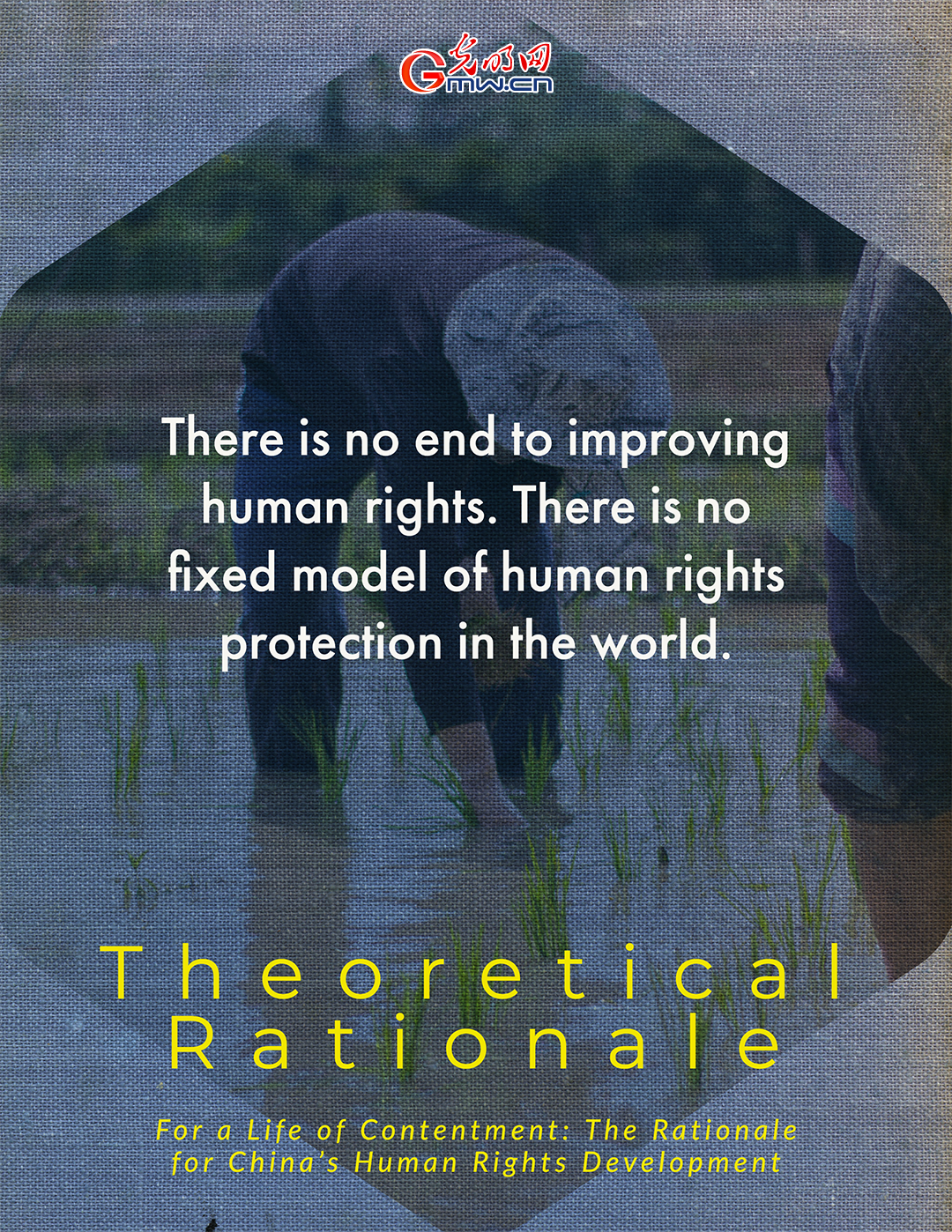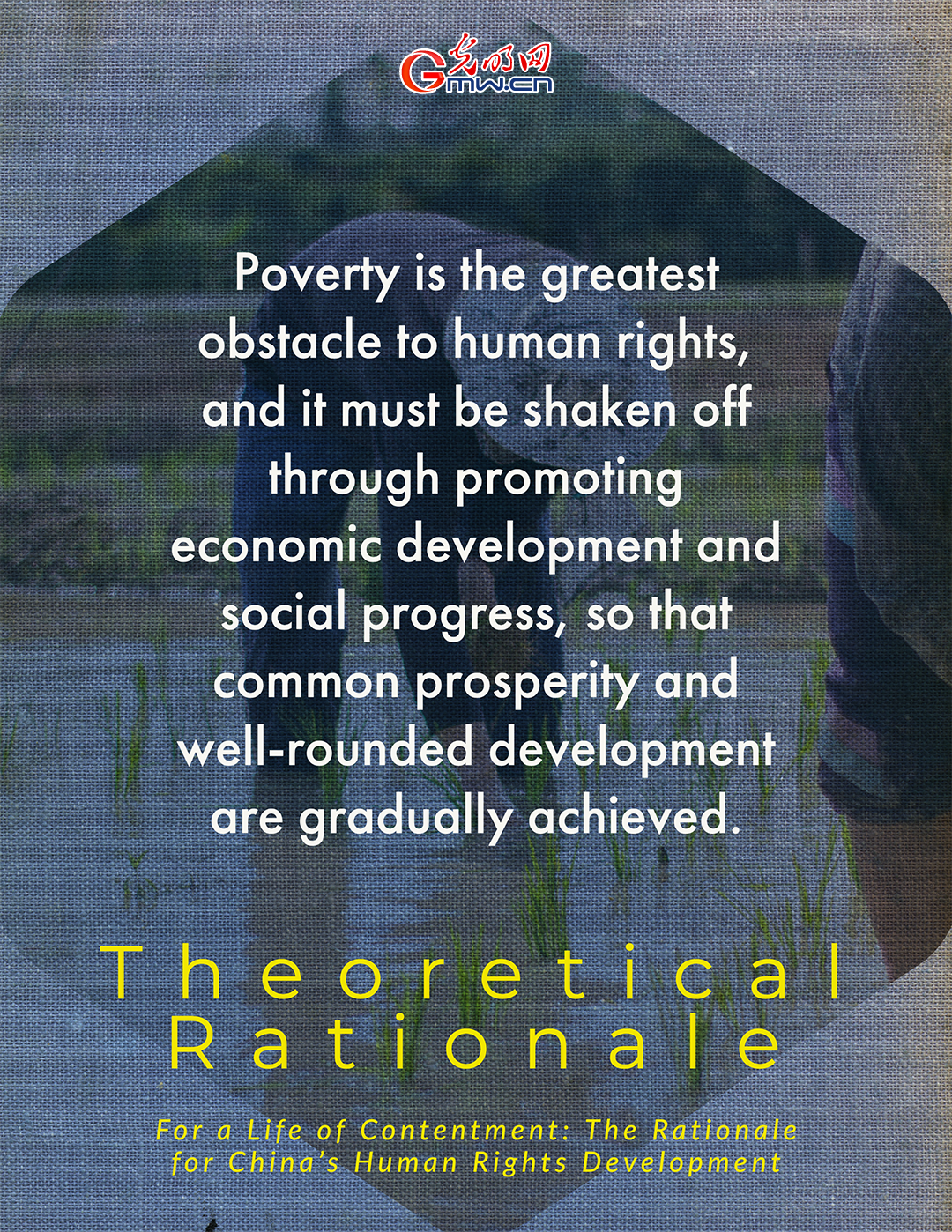

The theoretical rationale

From an epistemological point of view, human rights are historical, concrete and realistic. Human rights are the product of certain economic, social and historical conditions, and they develop with the changes of historical conditions. In this sense, the content and level of human rights protection are constantly enriched and improved. There is no end to improving human rights. There is no fixed model of human rights protection in the world. Different countries have different national conditions, histories, cultures, social systems and economic and social development levels. A proper path of human rights development should be explored to suit national conditions and the needs of the people.

From a practical point of view, human rights are promoted through development. Subsistence is the foundation for enjoying all human rights, and development is a must to guarantee subsistence and a foundation for the fulfillment of all other rights. Poverty is the greatest obstacle to human rights, and it must be shaken off through promoting economic development and social progress, so that common prosperity and well-rounded development are gradually achieved. This is China's key approach to advancing human rights protection.
From a dialectical point of view, human rights are the integration of individual and collective rights. There is no collective progress without individual development, while individuals can only enjoy well-rounded development in a collective context. Individual and collective human rights must be integrated and progress side by side, in order to achieve optimal development of human rights.

点击右上角![]() 微信好友
微信好友
 朋友圈
朋友圈

请使用浏览器分享功能进行分享
